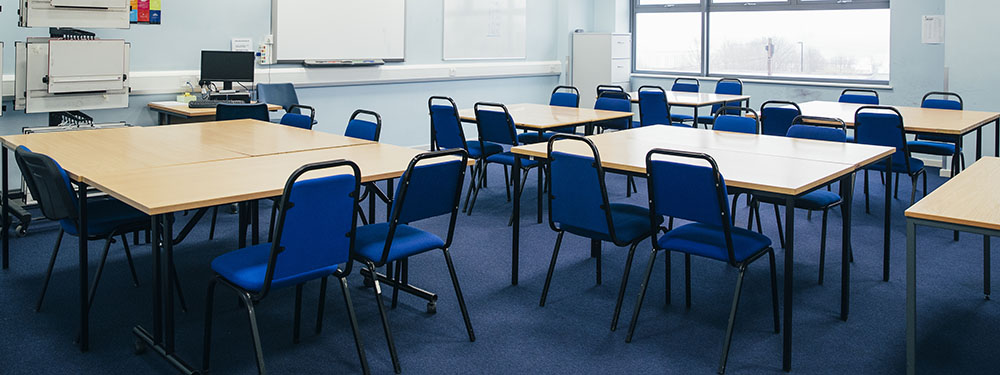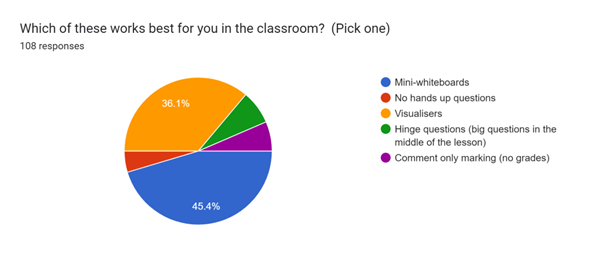
Within this learning space, there is a hugely diverse group of young people from all different walks of life. You have around thirty pupils for a lesson and you have to teach a complex concept. All of your class must understand this idea. Learning cannot happen unless it is understood.
You have delivered your instructions and modelled an example.
“Does everybody understand?”
You scan the room for signs of acknowledgement. Lots of nodding, particularly from the front two rows. Some weak smiles from the rest.
“Okay everyone, I now want you to write down, in your own words, what this means to you.”
Some start immediately. Some look at a neighbour and then begin. Some look out the window. Some look for an escape.
The learning grinds to a halt.
This is a common problem in teaching, where not all pupils grasp the learning in every lesson. This was true at The Hayling College. Our amazing young people were not always secure in their understanding. The staff had noticed this in lessons; pupil voice had returned the same verdict. So, what were we going to do about it?
We began work with the SSAT in 2022. The Embedding Formative Assessment (EFA) programme was tailor-made for our school as it condensed a wide-ranging span of research into some tangible in-class strategies that busy teachers can implement as part of their pedagogical routines. It is high-quality teaching.
Shaped by the research of Dylan Wiliam and Siobhan Leahy, the EFA programme was swiftly implemented at The Hayling College. We began by organising our twilight sessions over two years into sixteen EFA sessions, where Teaching and Learning Communities (TLCs) would meet to discuss the strategies in place. Contextually, we needed to establish a culture of checking for understanding in lessons. We introduced mini-whiteboards, no hands-up questioning, the use of visualisers and a traffic-light system in year one, following up with comment-only marking and hinge questions in year two. The focus of this piece will be on mini-whiteboards and no hands-up questioning.
An immediate change was evident with the introduction of mini-whiteboards. A school investment for all staff was made and every classroom had its own stock. The approach allowed for mini-assessments throughout the lessons as teachers were able to continually check for understanding, ascertaining what knowledge had ‘stuck’ and what had not. There definitely needs to be some training in place for pupils on how to use the whiteboards effectively, they are not for doodling! But our young people have responded well to mini-whiteboards, as seen in this pupil voice data (June 2024):

Some of the reasons given by our young people include the low-risk nature of providing answers from the ‘safety’ of their seat, turning whiteboards in unison so that everyone takes part and being able to rub an answer out. Our staff liked the way it does not allow for opt-out and you can quickly grasp students’ understanding without slowing the pace of learning. You can then adapt quickly to this mini-assessment, refining the subsequent teaching in accordance with this newfound knowledge. That is the essence of EFA.
We needed to address our passive pupils in the classroom and wanted to build upon the success of the mini-whiteboards. This was where the no-hands-up questioning technique was introduced. Essentially, you remove the requirements for hands, pushing out questions to all students using a targeted approach. This creates a culture of accountability for the pupils; it is their learning and they need to take an active part in it. Our wonderful staff at The Hayling College embraced this EFA strategy wholeheartedly; it is a technique that requires little resourcing, maintains a brisk learning pace and can ascertain students’ understanding immediately. In lesson after lesson across the school, no-hands-up questioning became a bedrock pedagogical technique. Our most recent staff voice survey (June 2024) highlighted the positive impact nearly two years of no-hands-up questioning has had on lessons:
“Students are more attentive and accountable in class”
“Easy way to check all students are involved. All students are giving it a go”
“To remain focused and be ready to answer a question at any time”
We are by no means ‘there’. There is work for us to do to develop our use of comment-only marking where pupils see the value of the feedback without the attribution of a numerical mark or grade. Hinge questions are being implemented but are not common practice so we need to review this strategy, perhaps with a repetition of the EFA workshop. Where is it working? What can we learn from mistakes? What can we learn from good practice?
But the quality of learning in classrooms has risen thanks to the EFA programme and our wonderful staff here at The Hayling College. A well-resourced initiative, excellent guidance and support, research-informed material and a pragmatic structure allow for an ease of implementation and to be shaped by the school’s context. To repeat what was said earlier, EFA is high-quality teaching.
Let’s return to that classroom from the start.
You have delivered your instructions and modelled an example.
“Does everybody understand?”
You scan the room for signs of acknowledgement.
“Okay everyone, I now want you to write down, on your mini-whiteboards and in your own words, what this means to you.”
All jot something down without risk. They rotate the boards in unison. You glance at the responses and follow up with some skilful no-hands-up questioning.
When the EFA programme is embedded there’s no time to look at a neighbour, no opportunity to gaze out the window and no need to plot an escape.
The learning is secure and the class moves on.
Lee Fisher, The Hayling College
